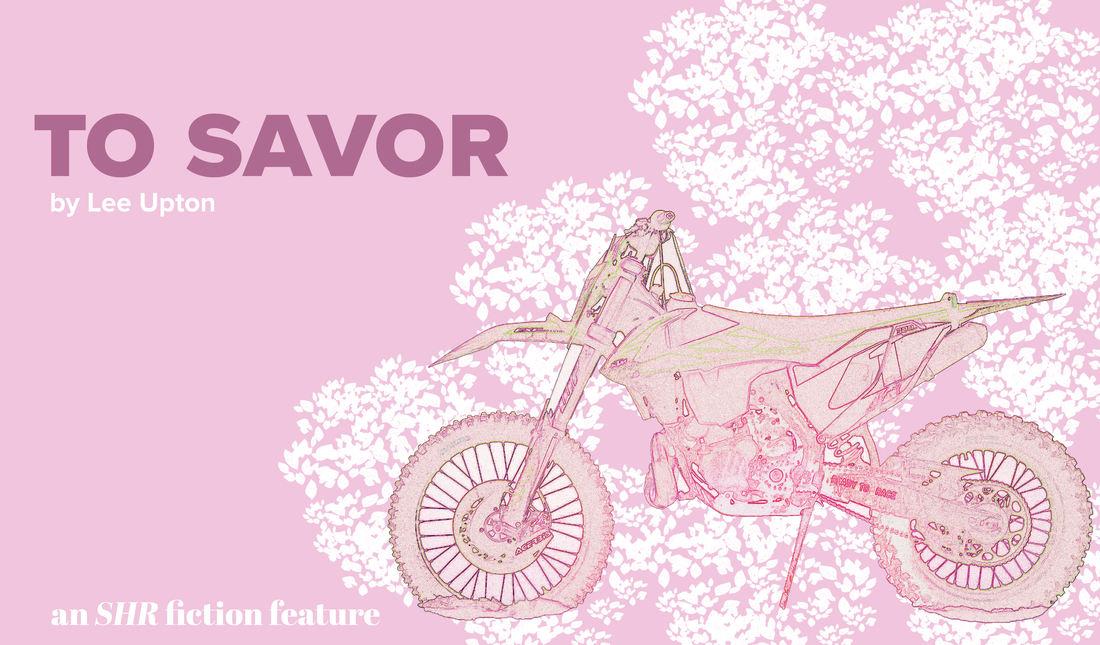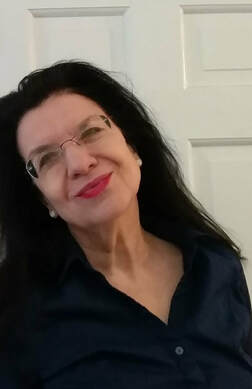As was their custom already—it was their third meeting—the women went around the room to answer the question. Savoring? Who savored anything? No one mentioned sex, and that was a relief to Ava, who was recovering from her second divorce. Mainly people mentioned food: rich coffee, baked chickpeas—there were two vegans in the group—salmon loaf with salsa and lemons, foaming chocolate mousse. When it was Ava’s turn she mentioned her family’s recipe for scalloped potatoes, so easy, and perfect, and impossible to mess up: thinly sliced peeled potatoes, drowned in cream, spattered with nutmeg.
After the women spoke about what they savored, the youngest of them told a story. More stories followed. None of the women knew each other well. But this night someone had brought two gallon jugs of sangria and the stories kept coming. Ginger-haired, in a low tunic that showed off her freckled breasts, one of the women told about her crush on her geography teacher and how she dated him after high school and discovered he didn’t know where the equator was. Another woman told about how her sense of smell kept her aunt from marrying a criminal. Evil, she said, smelled like old French fries and catsup. “It must be hell for you to go to McDonald’s,” someone said. In a lull Ava told her story.
It was a story she had almost forgotten, until the night of the book club.
What surprised her after she told the story: the other women’s pity. She had thought it would be a funny story, but the book club members looked sad and frightened for her and pulled away. Her own body must have stored up the story in her throat, for there it was, an obstruction that made breathing difficult.
She could have told the story about her mother—ill, terminally, and determined to pick cherries, and how Ava, there on a short ladder, a ten-year-old, watched her mother’s face between leaves. But that wasn’t really a story. Nor were there stories in the sight of fields overgrown with Queen Anne’s lace—all those headless ruffs that made her think of the beheaded queens she read about years ago in her library books. Nor was it really a story to tell about how as a young girl she took lessons in the woodworking club even though she didn’t know what she was doing. The wife of the club’s instructor was never home when lessons were held and Christmas decorations were kept up all year in that house. A dissatisfied woman, that wife, the sense of her always there in the rooms, her dissatisfaction like the atmosphere.
And so the story about the motorcycle trip was the best Ava could come up with.
When they went with the boy to pick up the girl, Ava was riding on the back of her boyfriend’s motorcycle. They waited for the girl and then suddenly there she was, descending from her porch, her hair billowing like a beautiful brown cloud. She was a tall girl in blue jeans and a halter top, and as Ava told the story to the book club, she could almost see the girl’s hair floating, glinting. All around the girl hung a mist, a haze. Ava had seen that haze on other girls and women only a few times. Once, she caught sight of an older cousin changing out of a bra and there it was: a foggy halo around her cousin’s breasts, each held up by a tiny cloud. Another time, in a hospital waiting room, a woman had such a startlingly smooth, long, and graceful neck that around her a fog rose. Beauty was something like a haze over vision, wasn’t it? You couldn’t ever really look directly at beauty.
As the girl walked toward them, Ava knew that her boyfriend’s eyes must have darkened and his skin must have drawn up on his jaw. She knew this without looking at him; she felt him quicken. She knew she’d lost him, but the loss had to be temporary. Like he was a stunned animal. Only wounded.
When they joined the other couples, Ava felt almost protective toward the girl. How it must be frightening for the girl to be with strangers. The cars on the highway sped past and the wind was loud, and Ava knew that if she fell from her boyfriend’s motorcycle she would be skinned alive. She was wearing denim shorts, the kind her boyfriend said he liked to see her in.
A cool smell in the air. Cedar. They were nearing the Upper Peninsula.
Ava was left in the parking lot, the other couples staring at her. On the stretch of road leading to the highway: her boyfriend riding away with the girl’s arms circling his chest. Ava was almost ready to run after them, and then she couldn’t move—the awareness like a door swinging shut in her face. The shock of it: the girl hadn’t hesitated. She had slid her leg over the back of his motorcycle and Ava’s boyfriend immediately took off with her arms around him. And left in Ava’s chest: something like a decades-long, slow heart attack.
The other couples looked away, with pity, and the thing in Ava’s throat lodged, so that her breath was hitched, like a hiccup that couldn’t happen.
At that moment—Ava remembers now—the force of an insight swept through her, the insight that forever afterward her life would follow the course set by that motorcycle trip. From one incident she took a great deal, as if the rejection she experienced duplicated an already set pattern. As if something similar, another abandonment, had already happened to her. She couldn’t remember an exact earlier incident. All she recognized was the sensation of familiarity. She had been young and chosen and then unchosen and supplanted. Words she can use now to explain things to herself, words she wouldn’t have used then.
Back then, she couldn’t have imagined being like that other girl—so aggressive, so sure of herself. Leaving another girl standing there, a girl so shamed and hurt she was unable to swallow.
After a while, the boy who was supposed to be with the other girl said, “You can ride with me.”
The accompanying memory: One of the girls on the trip must have told her father what happened. That girl must have, because after returning from the trip, Ava was sitting on the porch steps at that girl’s house when the girl’s father came out and sat beside her. For a long time he didn’t talk and then, quietly and earnestly, he said, “You will beat boys off with a stick for the rest of your life. You would look good in a gunny sack.”
You would look good in a gunny sack.
She could not discount the man’s kindness, ruin it for herself, even though that same week her father shook out a gunny sack in front of her and pink marbles rolled to the concrete floor of the corn crib. Her father stamped each round pinkness with his boots. Baby mice.
No. Gunny sack. A warm hand over her heart—just to think of that attempt at kindness by that other girl’s father. And was it wrong to want to be desired and seen in a glittering net filling with haze? A story from the book of myths she read as a child: Aphrodite and Mars caught in the gold net that Vulcan forged to catch them. Ava was never the one sheathed in gold sparks.
But no, that wasn’t exactly true. The way her boyfriend looked at that long-haired girl when she came out of her house: Later, Ava would be looked at in that way—a few times. And she would know Yeats’s lines by then: “Wine comes in at the mouth / And love comes in at the eye; / That’s all we shall know for truth / Before we grow old and die.” Once, a man set down a sack of groceries on the sidewalk and just stared at her. Another time a dentist could not stop stroking her face. Another time…It was like having all daylight concentrated on her. She’d known the worst sort of that light, but also the other sort, the almost spiritual sort, the stunned, admiring sort.
On the afternoon after the motorcycle trip, she rode her bicycle into town and went to the public library. The books. The cool shade inside the library. The smell of books, like leaves left over in spring from autumn. The spines of books, dull brown, dull green, dull black, dull blue. The library had once been a home. Little corners where the books hid. Only a few years earlier she had demanded to be allowed into the section for grownups. She couldn’t know that in five more years the library would be razed. That afternoon, she sat at a card table and read about a girl who hid in a hollow log and woke up next to a rattlesnake and still managed to live. The story helped. So many years later, she had almost forgotten that, how the story helped. She’d almost forgotten, too, that, on the bike ride home, she stopped to pick sour green apples from the tree that struggled out of the ditch north of her home. She bit into an apple and discovered a worm wriggling there in its dirty little parlor.
Something else she almost forgot—not about after the trip, but about the night of the motorcycle trip. It must have been the Fourth of July or near the Fourth because fireworks exploded over the lake they camped beside. The fireworks must have been beautiful, mirrored in the dark lake water. That night, all the couples slept in sleeping bags near one another—except for Ava’s boyfriend and the girl. They disappeared.
The next detail that swam into memory, a detail like a small object at the edge of a painting. Ava lay near the shy boy whose motorcycle she rode after her boyfriend left with the girl. The boy asked if he could kiss her. Please. She was full of pain and allowed the kiss. Because she didn’t care. Chaste. Short. Afterward, the boy looked up at the sky and seemed to thrum beside her. Despite her own misery, she knew he was happy.
For the first time, after the book club, after telling the story, after thinking about the story she told at the book club, Ava realized something: It might have been the boy’s first kiss, and he was savoring it.
CURRENT ISSUE
|
CONTACT
|
DEPARTMENT OF ENGLISH
|



